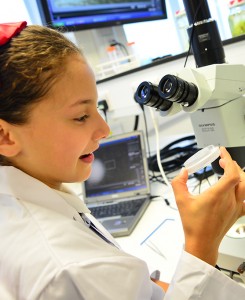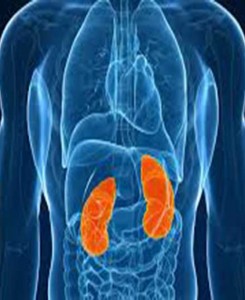Susan Watts joins the Clinical Sciences Centre
 The CSC has appointed its first Head of Public Engagement and Communications. Susan Watts will lead the next stage in the centre’s plans to tell wider audiences the ground-breaking research of its scientists.
The CSC has appointed its first Head of Public Engagement and Communications. Susan Watts will lead the next stage in the centre’s plans to tell wider audiences the ground-breaking research of its scientists.
Susan is an award-winning science journalist with a 30-year career as a broadcaster, writer and speaker. She was Science Editor of the BBC’s Newsnight programme until September 2013, when the post was closed.
“We’re delighted to welcome Susan,” said Amanda Fisher, Director of the institute and professor in cell biology at Imperial College. “Progress in the biomedical arena is gathering pace and Susan will help us showcase the amazing discoveries driven by CSC and Imperial research teams”.
Susan said: “I am hugely excited to begin working with the institute’s talented scientists, so that people can find out more about what their promising research might mean for them.”
Imperial inspires scientists of the future
 Over 100 pupils aged between 7 and 11 years old enjoyed hands-on microscopy workshops at the CSC in March.
Over 100 pupils aged between 7 and 11 years old enjoyed hands-on microscopy workshops at the CSC in March.
Local pupils from Glebe Primary School and Old Oak Primary School travelled to the Imperial teaching laboratories in the Commonwealth Building where they peered down light microscopes to examine beating heart cells, neurons, cancer cells, fly maggots and more.
To help the children make the most of the day, CSC scientists were on hand to demonstrate how to use the equipment and answer any questions. Demonstrator Hamlata Dewchand says, “Working with the children is always great fun and it is important to pass on our knowledge.”
Nitric oxide inhibitors protect against chronic kidney disease
 Chronic kidney disease affects approximately one in ten people but there are few effective treatments. Now researchers at the Clinical Sciences Centre have shown that inhibiting nitric oxide can protect against chronic kidney disease.
Chronic kidney disease affects approximately one in ten people but there are few effective treatments. Now researchers at the Clinical Sciences Centre have shown that inhibiting nitric oxide can protect against chronic kidney disease.
The researchers used ADMA – an inhibitor which typically raises blood pressure and impairs kidney function – to inhibit nitric oxide within the proximal tubes of the kidneys of transplant patients.
“This finding is completely novel and goes against the dogma that loss of nitric oxide is always bad for you,” says James Leiper, leader of the CSC’s Nitric Oxide Signalling Group.
“This paper demonstrates the strength of combining the very strong basic science from the CSC together with clinical medicine from Imperial College and ICL NHS Trust, and may have significant implications on the management of patients with chronic kidney disease.”
Find out more about the research: http://csc.mrc.ac.uk/novel-protection-mechanism-chronic-kidney-disease-identified-4/.
Tomlinson JA, Caplin B, Boruc O, Bruce-Cobbold C, Cutillas P, Dormann D, Faull P, Grossman RC, Khadayate S, Mas VR, Nitsch DD, Wang Z, Norman JT, Wilcox CS, Wheeler DC, Leiper J (2015): Reduced Renal Methylarginine Metabolism Protects against Progressive Kidney Damage. J Am Soc Nephrol, pii: ASN.2014030280. [Epub ahead of print]
Deborah Oakley
Science communications officer
MRC Clinical Sciences Centre